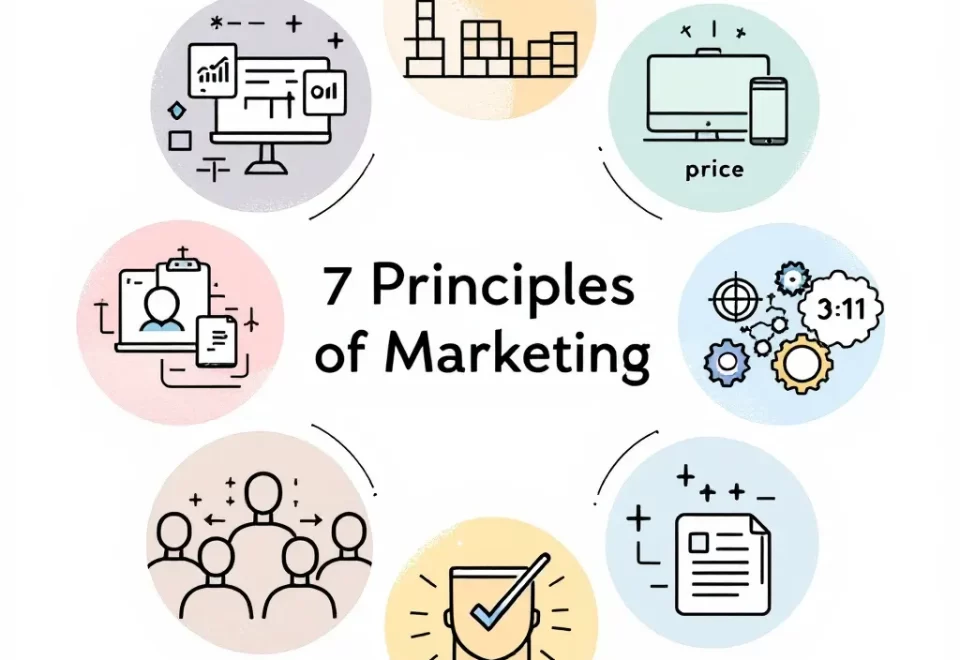Backlinks not only enhance your site’s authority but also significantly impact its search engine rankings. To achieve this, a comprehensive approach encompassing various facets of SEO, content creation, and strategic outreach is vital. Here, we’ll delve into seven actionable tips that blend technical expertise with creative content strategies to effectively build relevant backlinks for your website.
What Are Backlinks
Backlinks, also known as inbound links or incoming links, are links that point from one website to another. They are essentially connections from external sites back to your own website. These links are crucial in the world of SEO (Search Engine Optimization) and are considered votes of confidence or endorsements for your website’s content and credibility.
Key Points about Backlinks:
- External Validation: Backlinks serve as an external validation or recommendation. When other websites link to your content, it signals to search engines that your site is trustworthy and credible.
- SEO Impact: Search engines like Google use backlinks as a measure of a website’s authority and relevance. Sites with more high-quality backlinks tend to rank higher in search results.
- Quality Matters: Not all backlinks are equal. Quality backlinks come from authoritative and relevant sites within your niche. A single high-quality backlink can have more impact than multiple low-quality ones.
- Diverse Anchor Text: Backlinks often use anchor text, which is the clickable text in a hyperlink. Diverse and natural anchor text helps maintain a healthy and organic backlink profile.
- Natural Link Building: Natural, organic backlinks are acquired through valuable content, relationships, and genuine engagement within your industry. Unnatural or manipulative practices can lead to penalties from search engines.
- Monitoring and Maintenance: Regularly monitoring your backlink profile helps identify and address toxic or spammy links. Disavowing such links using tools like Google’s Disavow Tool helps maintain a healthy link profile.
In essence, backlinks play a crucial role in establishing your website’s authority, credibility, and visibility in search engine results. Building a diverse portfolio of high-quality backlinks through ethical and organic practices is fundamental to successful SEO and online presence.
Why Do You Need to Build Backlinks to Your Website?
Building backlinks is essential for several reasons that significantly impact your website’s visibility, authority, and overall success in the digital space. Here’s a detailed breakdown of why backlinks are crucial:
1. Improved Search Engine Rankings
Backlinks are a core factor in search engine algorithms. Search engines like Google consider backlinks as votes of confidence from other websites. The more high-quality and relevant backlinks your site has, the more likely it is to rank higher in search engine results pages (SERPs). It’s essentially a signal to search engines that your content is valuable and trustworthy.
2. Enhanced Website Authority and Credibility
Backlinks from authoritative and reputable websites serve as endorsements for your content. When esteemed sites link to yours, it elevates your website’s authority and credibility within your niche or industry. This increased credibility not only impacts search engine rankings but also influences how users perceive your site’s reliability.
3. Increased Organic Traffic
Quality backlinks from relevant sources drive referral traffic. When users encounter links to your site on other trusted platforms, they are more likely to click through to learn more. This referral traffic contributes to your overall website traffic, potentially leading to higher conversion rates.
4. Indexing and Crawling Assistance
Backlinks aid search engine crawlers in discovering and indexing your website’s pages. When a reputable site links to yours, it acts as a pathway for search engine bots to crawl and index your content, improving its visibility in search results.
5. Niche Networking and Relationships
Engaging in link-building activities often involves outreach and networking within your industry. Building relationships with other businesses, influencers, bloggers, and publishers can lead to collaborations, partnerships, and opportunities beyond just acquiring backlinks, potentially opening doors to new audiences and markets.
6. Competitive Edge and Market Positioning
In competitive industries, having a strong backlink profile can set you apart. Outranking competitors in search results due to a more extensive and high-quality backlink portfolio can establish your brand as a leader in the industry, attracting more customers and opportunities.
7. Long-Term Sustainable Growth
While search engine algorithms evolve, backlinks have consistently remained a significant ranking factor. Investing in building a diverse and authoritative backlink profile establishes a solid foundation for sustainable growth, ensuring your website’s relevance and visibility over time.
8. Referral Traffic and Conversions
Backlinks from relevant sources can bring in targeted traffic that’s more likely to convert. When users find your website through a trusted recommendation, they’re predisposed to engage with your content or offerings, potentially leading to higher conversion rates.
9. Brand Visibility and Recognition
Being mentioned or linked on respected websites enhances brand visibility. Consistent appearances across various platforms solidify your brand’s presence, making it more recognizable and trustworthy among your target audience.
Do you need help building relevant backlinks to your website?
Contact Growth Hackers
20 Effective Methods for Building Backlinks
1. Strategic Web Design and Development for Linkable Assets
Building linkable assets involves more than just aesthetic appeal. It’s about creating content or tools that naturally attract backlinks. Infographics, interactive tools, or comprehensive guides catered to your audience’s needs become valuable resources that other websites want to link back to. This strategy requires a seamless integration of design and development that focuses on both user experience and content quality.
2. On-Page SEO and Keyword Research for Content Optimization
On-page SEO plays a pivotal role in making your content link-worthy. Keyword research helps you understand what your audience is searching for and allows you to optimize your content around those keywords. Informational, commercial, and transactional keywords should be strategically incorporated into your content to enhance its relevance and visibility in search engine results, thereby making it more attractive for others to link to.
3. Leveraging SEO Tools for Insightful Link Building Strategies
SEO tools like Google Analytics, Google Search Console, Ahrefs, and SEMrush provide invaluable insights into your website’s performance, competitor analysis, and backlink opportunities. These tools help identify link-building opportunities by analyzing competitor strategies, understanding your site’s performance, and refining your content and outreach strategies for better link acquisition.
4. Harnessing the Potential of Google Business Profile and Google Maps
Optimizing your presence on Google Business Profile and Google Maps is crucial, especially for local businesses. Complete and accurate information across these platforms not only boosts your local SEO but also opens avenues for backlinks from relevant local directories and websites. Engaging with customers through reviews and maintaining updated business details increases your chances of being referenced and linked to by other local businesses.
5. Content Marketing and Blogging to Cultivate Link-Worthy Content
Content marketing and consistent blogging efforts are fundamental in attracting backlinks. Crafting high-quality, valuable, and shareable content positions your website as an authoritative source in your industry. Educational blog posts, informative articles, case studies, and engaging visual content can become link magnets when shared across platforms and referenced by others in your field.
6. Creating High-Converting Landing Pages for Link Acquisition
Strategic landing pages designed to provide specific solutions or valuable resources not only drive conversions but also attract backlinks. These pages need to be compelling, informative, and targeted to address the needs of your audience. Well-optimized landing pages become potential sources for others to link back to when referencing relevant information or services.
7. Balancing Off-Page SEO with Ethical Link-Building Techniques
Off-page SEO, particularly ethical link-building practices, is pivotal for acquiring relevant backlinks. Engaging in ethical practices such as guest blogging on reputable sites, fostering relationships with influencers, participating in industry forums, and leveraging broken link building strategies helps in acquiring genuine, quality backlinks. These approaches prioritize building relationships and offering value rather than merely focusing on link quantity.
8. Social Media Engagement for Link Promotion
Actively engaging and sharing your content on social media platforms not only increases its visibility but also encourages others to link to it. Engaging with your audience through compelling content, discussions, and sharing industry-related insights can organically prompt shares and references to your content, leading to potential backlinks.
9. Email Outreach and Networking
Email outreach is a powerful way to establish connections within your industry. Personalized outreach to bloggers, influencers, or industry experts with whom you’ve developed relationships can lead to collaborations, guest posting opportunities, or mentions in their content, resulting in valuable backlinks.
10. Testimonials and Reviews on Relevant Websites
Providing testimonials or reviews for products, services, or tools that you’ve used within your niche can lead to backlinks. Websites often link back to your site when they feature your testimonial, especially if it includes your company name and a link to your website.
11. Repurposing Content for Different Formats
Repurposing existing content into various formats—such as videos, podcasts, or slideshows—can widen your audience reach. Different formats appeal to different audiences, potentially increasing the chances of your content being referenced and linked to by diverse platforms.
12. Educational and Resourceful Linkable Content
Build niche-relevant backlinks by posting comprehensive educational resources, industry reports, whitepapers, or research studies that establish your authority. Valuable and insightful content tends to attract backlinks from authoritative websites seeking reliable information to reference.
13. Monitor and Capitalize on Trending Topics
Keeping an eye on trending topics within your industry enables you to create timely, relevant content. Being among the first to cover emerging trends or hot topics increases the likelihood of your content being referenced and linked to by others seeking up-to-date information.
14. Collaborate on Projects or Studies
Collaborating with other businesses, research institutions, or industry experts on projects or studies can lead to joint publications. These collaborations often result in mutual backlinking when the work gets referenced or shared by both parties.
15. Contribute to Online Communities and Forums
Actively participating in online communities, forums, and discussion boards related to your niche allows you to share insights and knowledge. When permitted, linking to relevant content within your contributions can attract backlinks from those seeking further information.
16. Regularly Update and Maintain Existing Content
Continuously updating and refreshing your existing content ensures it remains relevant and accurate. Websites are more likely to link to content that’s current and valuable, so keeping your content up-to-date increases the chances of it being referenced.
17. Encourage User-Generated Content and Engagement
Encouraging user-generated content such as reviews, testimonials, or contributions fosters user engagement. User-generated content often results in backlinks when users share their contributions and link back to your site, contributing to a natural link-building strategy.
Boost your website’s authority – start building powerful backlinks today!
18. Event Sponsorships or Participation
Sponsoring or participating in industry-related events, conferences, or webinars can generate backlinks. Event organizers often feature sponsors, speakers, or attendees on their websites, providing an opportunity for a valuable backlink. Participation in these events also helps in networking and establishing relationships within your industry, potentially leading to more linking opportunities.
19. Expert Roundups or Interviews
Conducting expert roundups or interviews gathers insights and opinions from industry leaders. These types of content tend to attract attention because contributors often share the content they’re featured in with their audience. By compiling these valuable insights into a comprehensive post, you create a resource that others in your niche may reference and link to.
20. HARO (Help a Reporter Out)
HARO connects journalists with experts. By subscribing, you receive queries seeking insights related to your expertise. When you respond and get featured in an article, you earn credibility and often a backlink to your site. HARO helps establish authority, secure high-quality backlinks from respected publications, and increase exposure. To maximize results, choose relevant queries, provide valuable insights promptly, and track your mentions to measure success.
Things to Avoid When Building Relevant Backlinks to Your Website
When building relevant backlinks, it’s crucial to steer clear of certain practices that could harm your website’s reputation and rankings. Here’s a detailed breakdown of what to avoid:
1. Buying Links or Engaging in Link Schemes
Purchasing links or participating in link schemes violates search engine guidelines. These practices involve exchanging money, services, or other incentives for links, and they can lead to penalties from search engines. It’s essential to earn backlinks organically through quality content and ethical outreach.
2. Low-Quality or Irrelevant Directories
Submitting your website to low-quality or irrelevant directories purely for link-building purposes can be detrimental. Focus on reputable directories relevant to your niche or industry. Avoid spammy or low-authority directories that provide little value to users.
3. Excessive Link Exchanges
Exchanging links with numerous websites, especially irrelevant or low-quality ones, solely to manipulate search rankings can result in penalties. Natural, organic link exchanges with relevant and reputable sites are acceptable, but excessive or forced link exchanges are discouraged.
4. Overusing Exact Match Anchor Text
Using exact match anchor text excessively in backlinks can appear unnatural to search engines. Diversify your anchor text with variations and include branded, generic, and natural phrases to maintain a natural link profile.
5. Manipulative Guest Posting
Guest posting solely for the purpose of building links, without providing valuable content, is seen as manipulative. Focus on contributing high-quality, informative content that adds value to the audience rather than solely aiming for link acquisition.
6. Irrelevant or Spammy Comments and Forums
Posting irrelevant comments or participating in spammy forums solely to drop links is considered a black hat SEO tactic. Engage meaningfully in discussions and only include links when genuinely relevant and helpful to the conversation.
7. Automated Link Building and Link Farms
Using automated tools to create links in bulk or participating in link farms—networks of websites created solely for linking purposes—violates search engine guidelines. These tactics result in low-quality, irrelevant backlinks that can harm your site’s reputation and rankings.
8. Ignoring Backlink Quality
Focusing solely on quantity without considering the quality of backlinks can be detrimental. A few high-quality, relevant backlinks from authoritative sites hold more value than numerous low-quality links. Aim for natural, earned links from reputable sources.
9. Ignoring Toxic or Spammy Backlinks
Failing to monitor and disavow toxic or spammy backlinks can negatively impact your site’s performance. Regularly audit your backlink profile using tools like Google Search Console and disavow links from irrelevant, low-quality, or suspicious sources.
10. Keyword-Stuffed Content for Links
Creating content stuffed with keywords solely for the purpose of link acquisition is frowned upon. Content should be user-focused, informative, and valuable, aiming to provide information rather than manipulate search rankings.
Final Thoughts on the Tips for Building Relevant Backlinks to Your Website
Building relevant backlinks is a long-term strategy. Focus on quality over quantity by earning relevant links from trusted sources. Diversify your links, create valuable blog post content, leverage broken links, and build relationships. Follow ethical practices, monitor performance, and be patient. Ultimately, aim to establish authority and credibility in your niche for sustained success.
If you’re looking to effectively build relevant backlinks to your website, then you need the expertise of Growth Hackers.
Growth Hackers offers top-notch link building services, we’re dedicated to supercharging your visibility and traffic. Through meticulous keyword research, SEO-optimized content creation, and strategic link building, we drive consistent traffic and leads to your business.
Our commitment? Results. We go beyond the ordinary, using cutting-edge growth strategies tailored to propel your business forward. Whether you seek lead generation, increased traffic, boosted sales, brand strengthening, conversion optimization, user acquisition, or retention, we’re here to collaborate closely and achieve your company’s goals.
The outcome? A scalable solution fueling your revenue growth. Contact Growth Hackers today and let’s unlock your company’s growth potential together.









